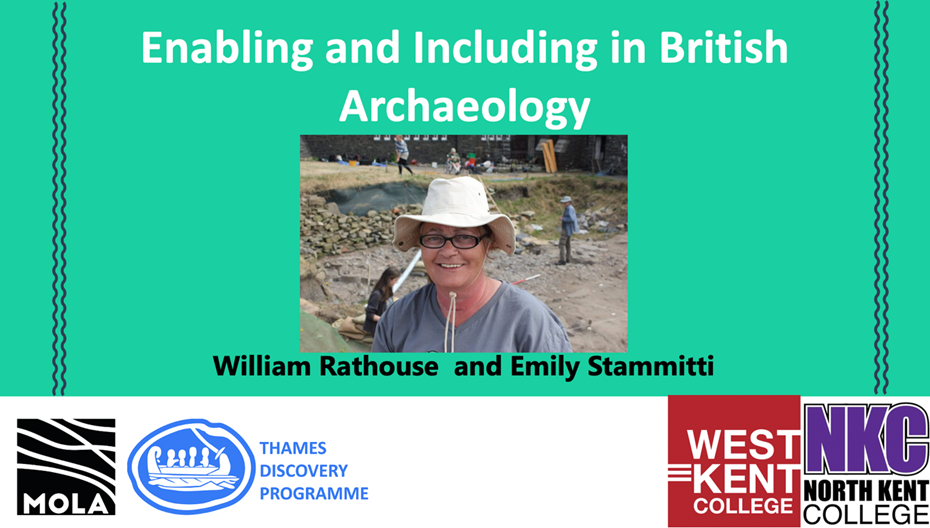A Tribute to Theresa & British Enabled Archaeology
In a fitting testament to work of Theresa, Emily Stammitti and MOLA Community Archaeologist, Will Rathouse, presented a paper at the digital Reuvensdagen Conference held on November 19, 2020. It was delivered as one of several talks revolving around inclusion in archaeology in the Netherlands, and the culmination of many conversations with colleagues at Universitaet Leiden in the Netherlands.
Together with other researchers in Leiden, Emily helped establish a mini international ‘think tank’ about inclusion, equality and enabled archaeology, looking at the UK as the forerunner of inclusive archaeology. A past colleague of both Theresa’s and Emily’s, Will joined this small group due to his experience as a veteran, in the mental health sector and his status as a respected community archaeologist at MOLA.
Reuvensdagen Conference
The paper examined the exclusion and subsequent inclusion of people in British archaeology whose obstacles to participation have been through physical disadvantage, mental health conditions or socio-economic circumstances.
It builds upon the work of and is dedicated to the late Theresa O’Mahoney who pioneered an approach she described as “Enabled Archaeology” campaigning eloquently and vigorously against denial of opportunities to study, participate in and professionally practice archaeology by universities, community groups and employers. It looks to explain why these opportunities were denied and how some institutions began to support aspiring archaeologists in need of enablement.
To achieve a more inclusive society, Theresa established the Enabled Archaeology Foundation just weeks before her untimely death in September 2019. Alongside the EAF, many practitioners are currently engaged in studying and promoting Teresa’s work, seeking ever to find ways of providing equal participation and access to opportunities in archaeology: from field excavation to post ex, research to survey. Emily explains how her work in Edinburgh facilitated participation, study and career development. Will talks about plans to involve enabled archaeologists working on the Thames foreshore this year and explains the use of archaeology to support and encourage.
Theresa sought to realise an archaeology community that is as inclusive as it is compassionate, and this paper was dedicated to her memory.
